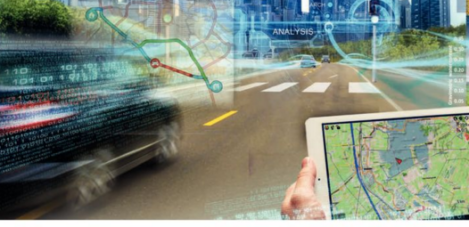October 27, 2015
OECD report urges firms to use Big Data analytics for growth and wellbeing 0
 A new OECD report claims that organisations could be doing far more to use the data they and their employees generate to deliver a wide range of social, economic, commercial and personal benefits. In Data-driven innovation for growth and wellbeing, it suggests that governments do more to encourage investment in Big Data and promote data sharing. The report urges countries to act to train more data scientists, reduce barriers to cross-border data flows and encourage investment in business processes to incorporate data analytics. It also claims that few companies outside the ICT sector are changing internal procedures to take advantage of data. This is particularly the case for small and medium-sized companies who face barriers to the adoption of data-related technologies such as The Cloud, partly because they have difficulty implementing organisational change due to limited resources.
A new OECD report claims that organisations could be doing far more to use the data they and their employees generate to deliver a wide range of social, economic, commercial and personal benefits. In Data-driven innovation for growth and wellbeing, it suggests that governments do more to encourage investment in Big Data and promote data sharing. The report urges countries to act to train more data scientists, reduce barriers to cross-border data flows and encourage investment in business processes to incorporate data analytics. It also claims that few companies outside the ICT sector are changing internal procedures to take advantage of data. This is particularly the case for small and medium-sized companies who face barriers to the adoption of data-related technologies such as The Cloud, partly because they have difficulty implementing organisational change due to limited resources.

















 A series of executive briefings taking place next week in Central London offers you the chance to learn about the next generation of technologies and their impact on the workplace, working practices and office design. Insight readers can enjoy a 15 percent discount by using this
A series of executive briefings taking place next week in Central London offers you the chance to learn about the next generation of technologies and their impact on the workplace, working practices and office design. Insight readers can enjoy a 15 percent discount by using this 
 According to a report published in the
According to a report published in the 
 Companies are rethinking the tools they use to keep employees engaged and loyal – especially at a time when flexibility and choice are increasingly important to an workforce that craves mobility and choice. A newly released survey from
Companies are rethinking the tools they use to keep employees engaged and loyal – especially at a time when flexibility and choice are increasingly important to an workforce that craves mobility and choice. A newly released survey from 
 A new study from US based technology research organisation ABI Research claims that sales of tablets as well as their worldwide user base will start to shrink next year for the first time. According to
A new study from US based technology research organisation ABI Research claims that sales of tablets as well as their worldwide user base will start to shrink next year for the first time. According to 










October 2, 2015
For once and for all, please stop with this ‘death of the office’ stuff 0
by Mark Eltringham • Comment, Furniture, Property, Technology, Workplace design
(more…)